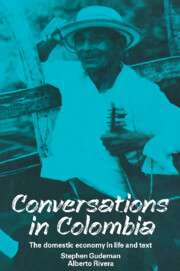7 - REMAINDERS
Published online by Cambridge University Press: 03 October 2009
Summary
We never expected the word “la sobra” to give us difficulty. According to the dictionary, “la sobra” means “surplus” or “excess,” and we anticipated that folk usage, from the margin, would provide some insight into the modern uses of “surplus” and “profit” that have long been at the center of theories in economics and anthropology. But as the practices of the rural people unfolded and as we were drawn into conversations, the incorrectness of our initial expectation became clear. “La sobra” never fitted the lexical position we had assigned it, its usage remained shifty, and regardless of the conversational ploy we tried, the rural folk could not be induced to talk about it as the house counterpart of corporate profit. Only after some time, and conversations among ourselves, did we come to a better appreciation of the term.
We now gloss “la sobra” as the “leftover,” “remainder,” “remains,” or “excess.” In rural usage, the word is a shorthand for la sobra de la casa, “house leftover.” The verb form “exceed” (sobrar) is also heard, while el sobrado designates the kitchen loft or pantry shelf where the (leftover) crops are stored. La sobra, we came to understand, has several applications, although it almost always refers to the flow of crops within the house. Its opposite expression is el gasto de la casa, “house expenditure.”
- Type
- Chapter
- Information
- Conversations in ColombiaThe Domestic Economy in Life and Text, pp. 116 - 138Publisher: Cambridge University PressPrint publication year: 1990

